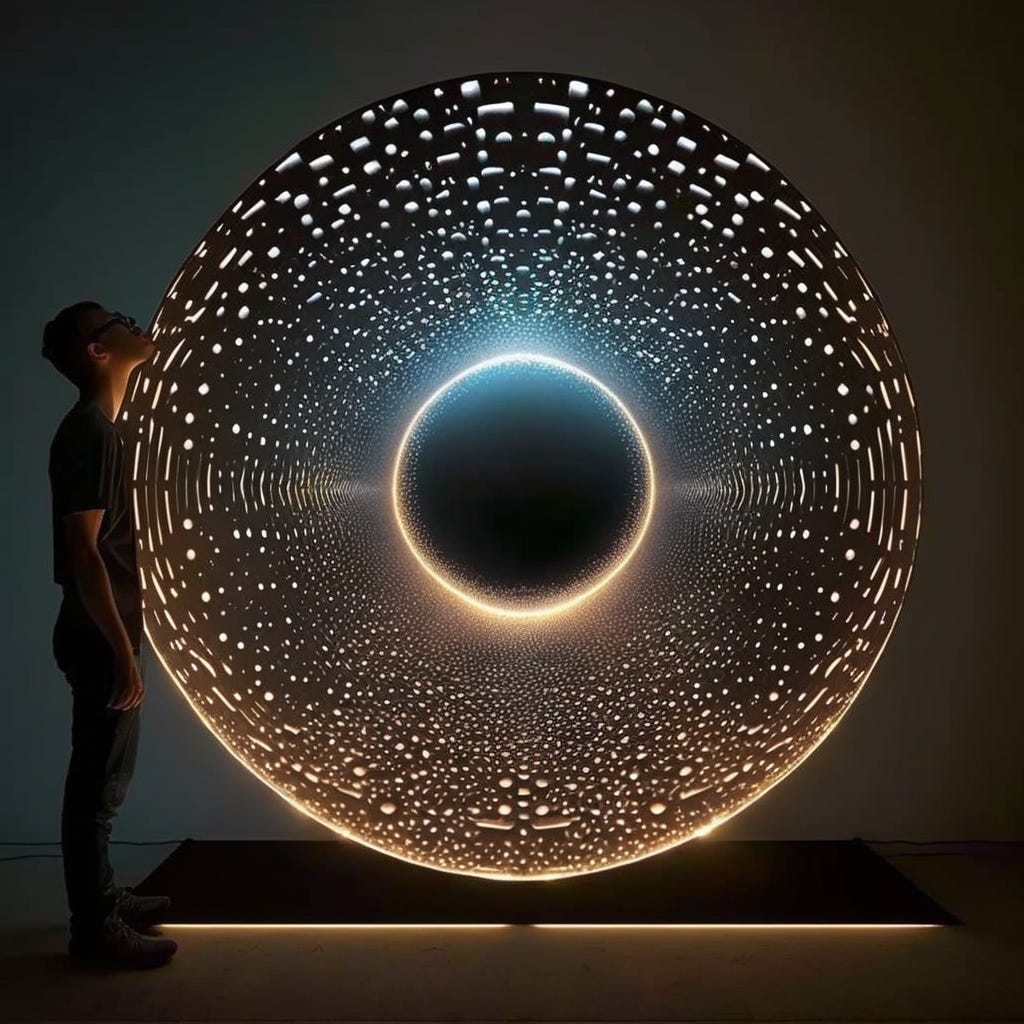How to Not Go Mad in the Complexity Age
A philosophical rant on new modes of relating to complexity
The world is asking us if we can step up to the challenge. This obstacle is unlike anything that came before this. It's not an increase in volume of knowledge, but rather a changes in modes of perception.
It's as if we've been walking through a forest and counting the trees one by one, but then discover that we can take a helicopter straight up and out of the forest and count it as one WHOLE forest. Interconnected in it's many ways. The meta jump.
We're living in the complexity age. We will never understand the world through MORE. Yet at the same time, less isn't necessarily the answer. The answer, I believe, are new modes of cognition and better pattern recognition.
As Bonnita Roy points out:
We are at a point in history where knowledge is being compounded at such a rate that it is estimated that it doubles every 13 months. According to IBM, the internet of things will shorten that to every 12 hours. We are in a race to consuming more and more information and we still feel we are falling behind.
Another way of putting it is that we're facing the hungry ghost problem. "The nature of hungry mind is that the more it feeds on information, the hungrier it grows." writes Roy.
What we need is an entirely new way of relating to and inhabiting this age that leads to breakthroughs and understanding as opposed to unimaginable degrees of overwhelm.
use the knowledge to prime an even deeper wonder and respect and reverence and awe…then the practice of knowledge and the practice of the Tao are dancing.
Rather than choosing inaction in the face of complexity, what if we can cultivate a sense of being at home in the world, at ease with the increasingly rapid flow of life. Not by trying to grasp every single ounce of information out there, but by more intuitively sensing into the signals of our body and choosing agency in the face of infinite options.
Infinity can be beautiful after all. it can inspire.
The Tao that is namable is not the eternal Tao.
Naming gives rise to the ten thousand things
Higher-Order Synthesis of Information & Tao
The wholeness of universe and all the interrelationships within are taken for granted when we isolate one part and try to name it and model it.
On the one hand we will never be able to learn all there is to learn. Yet at the same time, we don't need to learn everything. Insights from [[relevance realization]] teach us that there are ways of relating to the ten thousand things that point us to exactly what is relevant at any given point in time.
Contrarily, it's also valuable to sit in the vast unknowable-ness of it all. To bask in the glory of the universe (aka: god-consciousness, reality, absolute infinity).
These both have their place, these are both valuable. Just because reality seems to be infinite doesn't mean that studying the finite is useless.
Where the mystery is the deepest is the gate of all that is subtle and wonderful.
Conclusion
Just because the world is getting more complex doesn't mean that it has to get more overwhelming. There are other way of relating to the world that can help us to navigate this increasingly fast-paced world. Ones where we use our gut and sense into what is ours to do.
In my experience, I've noticed that I get the most overwhelmed when I try to take on too many things at once. Reading too many books, listening to too many lectures, writing too many articles, recording too many podcasts, responding to too many people. By slowing down to the pace of life itself and sensing into what is mine to do in this very moment I can step up to the situation that the world is calling forth in me with sovereignty and power.
At the root lies this underlying hope that whatever needs to get cultivated will get cultivated.






